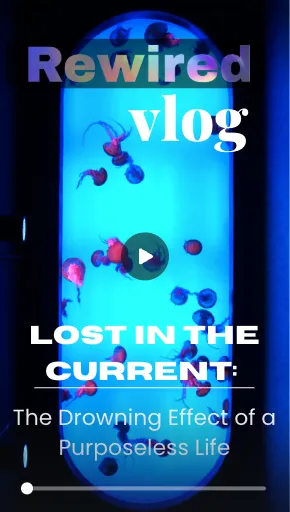
The Jellyfish Effect
Lost in the Corporate Current: The Jellyfish Effect
Imagine a vast ocean, teeming with life. Within its depths, a school of fish, each with a specific role, swims in harmony. They navigate the currents, hunt for food, and reproduce, all with a clear purpose. In contrast, consider a single jellyfish, adrift and alone, with no clear direction. It may survive, but it will never truly thrive.
Similarly, in the corporate world, many individuals find themselves adrift, lacking a sense of purpose in their work. This lack of purpose, often referred to as the "Jellyfish Effect," can have a profound impact on both their professional and personal lives.
The Neuroscience of Purpose
Recent research in neuroscience and positive psychology has highlighted the importance of purpose in our lives. When we have a sense of purpose, our brains release dopamine and oxytocin, neurotransmitters associated with pleasure and reward. This can lead to increased motivation, creativity, and overall well-being.
The Psychological Impact of a Purposeless Job
A lack of purpose in our work can lead to a variety of psychological issues, including:

Decreased motivation: When we don't see the significance of our work, it's difficult to stay motivated.
Increased stress: A lack of purpose can lead to feelings of anxiety and frustration.
Burnout: Constant stress and a lack of meaning can lead to burnout.
Decreased job satisfaction: When we don't feel connected to our work, we're less likely to be satisfied with our jobs.
Reclaiming Your Purpose in the Workplace
To break free from the Jellyfish Effect and reclaim your purpose in the workplace, consider the following strategies:
Align Your Values: Identify your core values and find ways to align them with your work.
Set Meaningful Goals: Set specific, measurable, achievable, relevant, and time-bound (SMART) goals that contribute to a larger purpose.
Seek Feedback: Regularly seek feedback from your supervisor and colleagues to gain insights into your strengths and areas for improvement.
Build Relationships: Strong relationships with colleagues can help you feel more connected to your work.
Practice Mindfulness: Mindfulness techniques can help you stay present and focused, reducing stress and improving your overall well-being.
Find a Mentor: A mentor can provide guidance and support as you navigate your career.
Volunteer: Volunteering can help you connect with others and make a positive impact on your community.
By taking these steps, you can reclaim your purpose in the workplace and experience greater job satisfaction, increased motivation, and improved overall well-being. Remember, a life without purpose is like a jellyfish adrift in the ocean, lacking direction and meaning. By actively seeking and cultivating purpose, we can live a more fulfilling and meaningful life.
